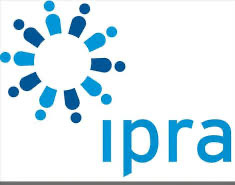By Isaac Asabor
Copyright independent

When Nataša Pavlovic Bujas, President of the International Public Relations Association (IPRA), issued her September 2025 message themed “Honouring Excellence, Inspiring the Future”, it was more than an address to the global fraternity of communicators.
It was a charge, one that Nigerian public relations practitioners cannot afford to ignore.
Her reflections on artificial intelligence (AI) and the irreplaceable human role in public relations cut across borders, but their domestication in Nigeria is urgent.
The nation’s PR ecosystem, defined by cultural complexity and a volatile socio-political climate, needs a compass to balance innovation with responsibility. Bujas’ message provides exactly that.
Across the Nigerian PR landscape, AI tools are gradually being embraced. Agencies now rely on sentiment analysis dashboards, social media bots, and automated drafting systems to streamline operations.
At first glance, these technologies promise efficiency, faster turnarounds, deeper data insights, and cost reductions.
But as Bujas cautions, speed is not the same as value.
AI cannot replicate empathy or cultural awareness. In a country with 250+ ethnic groups, where a poorly worded campaign can spark ethnic, religious, or political backlash, the human touch remains indispensable.
Technology may scan trends, but it cannot sit with a traditional ruler in Benin, empathise with flood victims in Kogi, or negotiate peace through trust-building. These are uniquely human functions—and Nigerian PR cannot afford to substitute them with algorithms.
Public relations in Nigeria has always been people-driven. From its early colonial-era roots to the institutional frameworks established by the Nigerian Institute of Public Relations (NIPR), the profession has been about relationships, credibility, and cultural fluency.
In a media environment saturated with misinformation, Nigerian practitioners are under pressure to prove that PR is not propaganda.
Here, Bujas’ words ring true: “Technology should assist us, but it cannot define us.” If PR is reduced to mechanized content without integrity, the trust deficit already plaguing Nigerian institutions will only widen.
The task before Nigerian PR bodies, institutions, and practitioners is to embed IPRA’s vision into local realities. This means strengthening ethical codes, reforming education and training, recognising human-centred campaigns, and leveraging PR for national development.
Explanatorily put, the NIPR must go beyond issuing codes of conduct; enforcement should be firm. AI shortcuts must never excuse misinformation, manipulation, or unverified claims. PR must be synonymous with credibility.
Universities offering mass communication and PR should revamp their curricula to include AI literacy alongside human-centered skills, like negotiation, crisis sensitivity, and cultural communication. Tomorrow’s PR officers must be both tech-savvy and people-savvy.
Nigeria’s award platforms should not just reward creativity in digital tools but celebrate courage, cultural sensitivity, and ethical storytelling.
Just as IPRA’s Golden World Awards in Ghana will honor integrity-driven campaigns, Nigerian recognition systems must uplift those who serve society with both innovation and conscience.
Practitioners must look beyond corporate clients. Issues such as voter apathy, health misinformation, climate resilience, and community peace-building all require professional communicators. AI can amplify outreach, but empathy must drive the message.
Nigeria is at a fragile juncture, economically strained, politically polarised, and socially fragmented. In this environment, the role of PR cannot be trivialised. Every campaign has the potential to heal or divide, inspire or inflame.
Bujas’ reminder that “Ultimately, the responsibility for what is said, published, and promoted lies with people” is not abstract; it is painfully relevant. AI-generated spin cannot be blamed for reputational crises; responsibility will always fall on the practitioner.
Embedding IPRA’s message onto Nigeria’s PR landscape is not an option, it is a necessity. As the world celebrates global PR excellence in Ghana this October, Nigerian practitioners must commit to their own renaissance: embracing technology without surrendering humanity, innovating without eroding trust, and practicing with a conscience anchored in cultural wisdom.



